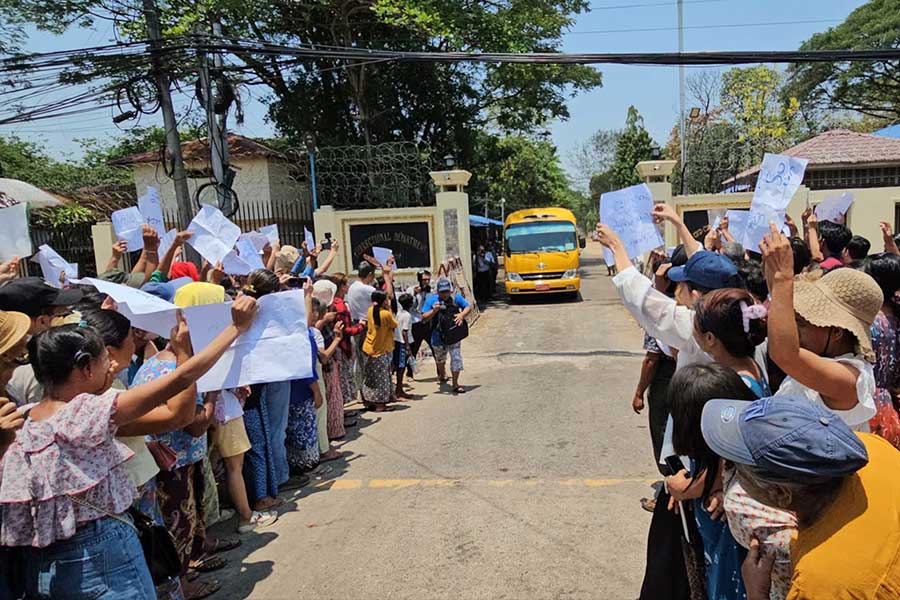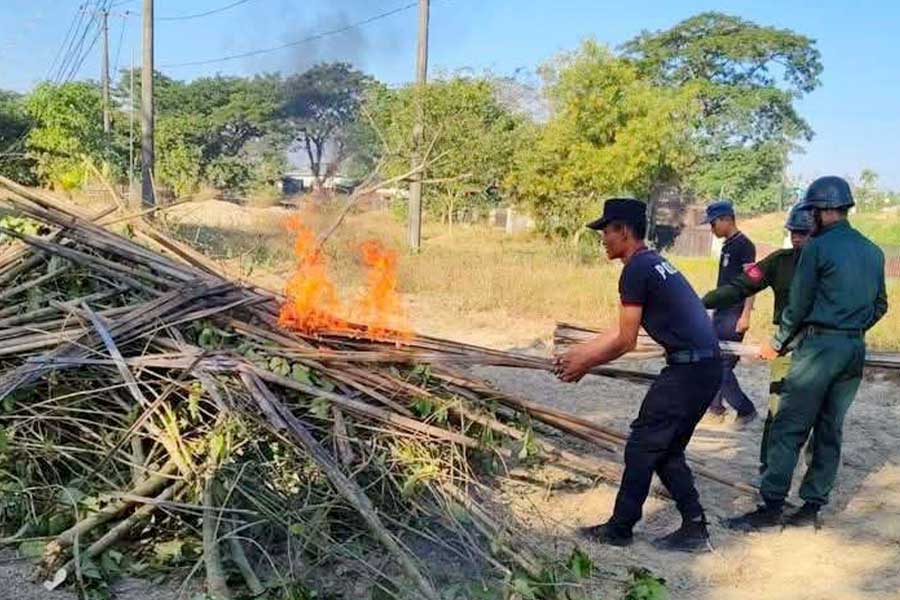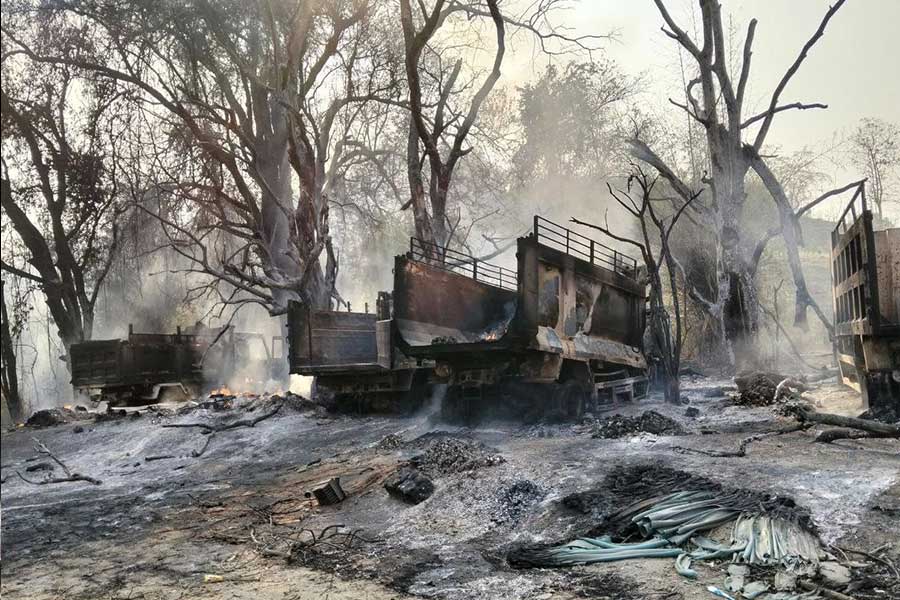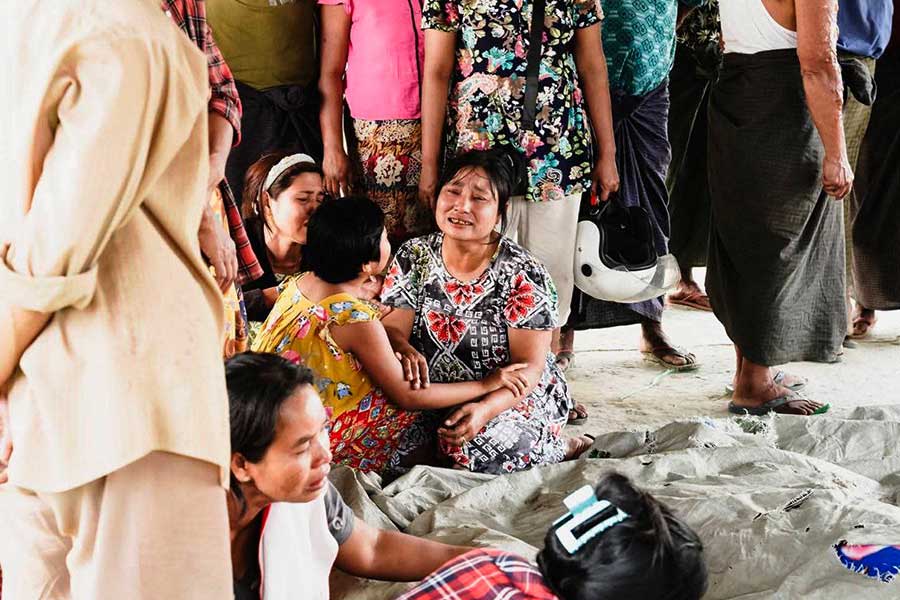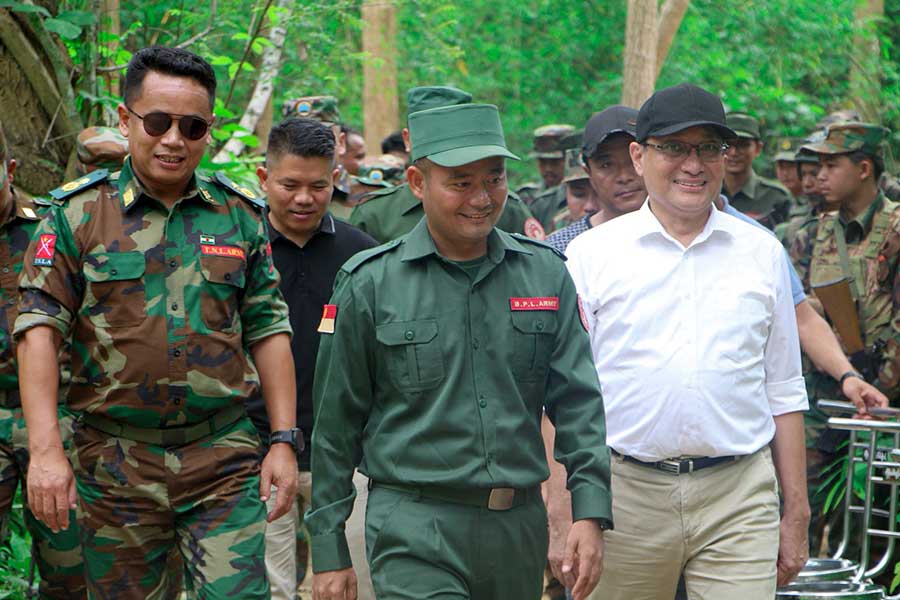- Weekly Highlights from Arakan (Feb 23 to March 1, 2026)
- Over 300 political prisoners freed from 10 prisons nationwide
- DMG Editorial: Between War and Opportunity - A New Border Reality for Bangladesh and Arakan
- Arakan Army sets five-year prison term for kratom cultivation in controlled areas
- Junta airstrikes kill over 25, including Arakanese merchants, in Mindon Twsp
Commodity flows in Maungdaw District hampered by strict junta checks
The flow of goods is delayed and local residents are experiencing a rise in the price of goods due to the Myanmar military regime’s strict inspection practices in Maungdaw District, Arakan State.
09 Mar 2023
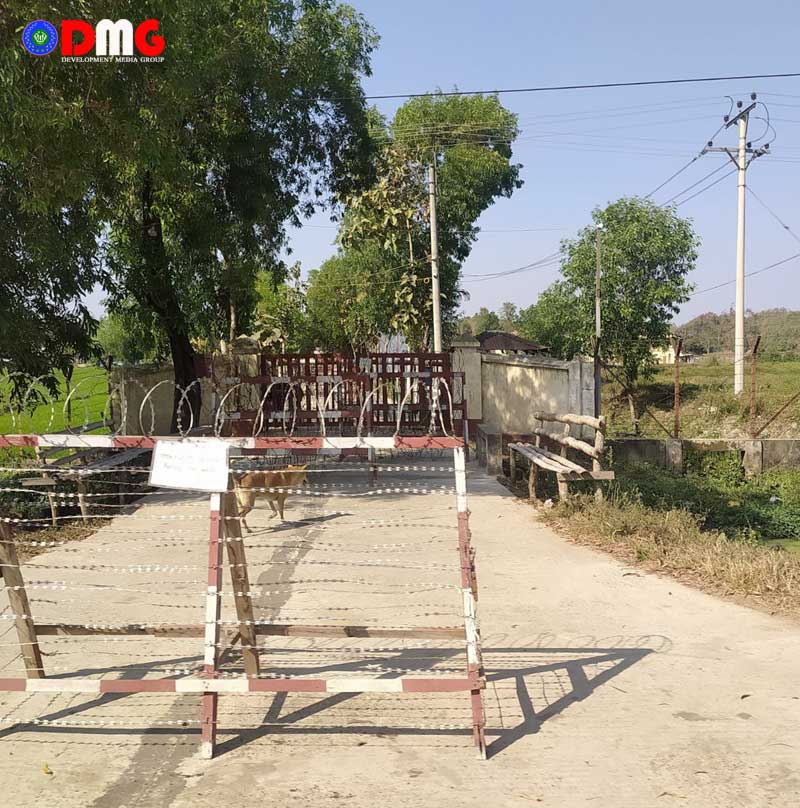
DMG Newsroom
9 March 2023, Maungdaw
The flow of goods is delayed and local residents are experiencing a rise in the price of goods due to the Myanmar military regime’s strict inspection practices in Maungdaw District, Arakan State.
The price of a sack of Paw Hsan Mwe, the most popular variety of rice, has increased by around K30,000, from K70,000 to K100,000 and a lower grade rice variety has risen by K20,000, from K40,000 to K60,000, in Maungdaw and Buthidaung townships.
“Locals are not allowed to transport goods as much as they need. … Local people always face shortages of goods,” said an employee from the Department of Education who did not wish to be named.
When local residents transport goods via waterways, junta soldiers inspect them at the Angumaw checkpoint, and transportation charges increase. The associated delays cause some to use the land route alternative.
Previously, there were only four security checkpoints along the highway from Sittwe to Maungdaw, but since last month, the regime has manned a new checkpoint near 3rd Mile, making it more difficult for locals to travel.
“Junta soldiers and police check travelers’ ID cards and conduct tight checks on strangers,” said an educational employee in Maungdaw.
“There is a lot of difficulty because the local residents are only able to transport goods with many restrictions,” said a resident of Myaungnar Village in Buthidaung Township. “For example, it is more difficult for local residents to purchase medicine. If you run out of medicine, you won’t be able to buy it in the villages. If local people are transporting goods, they need to get a recommendation letter from the police.”
The regime has banned travel on the Ponnagyun-Rathedaung road since June 2022. Then in February of this year, the regime began only allowing three-wheeled motorcycles and motorbikes to travel along the highway, and cars were prohibited, according to locals.
A resident of Pauktawpyin Village in Ponnagyun Township said local people’s socio-economic circumstances are being negativeyl affected because they are still not allowed to travel freely on the Ponnagyun-Rathedaung road.
“Residents are losing their rights, so they want to get access to this road as soon as possible. If the locals go to Sittwe, they have to go through other towns. Most of the drivers running routes on that road have also lost their jobs. Even if the military council does not allow the locals to travel freely, they want the restrictions to be relaxed a little,” he added.
DMG was unable to obtain comment from Arakan State Minister for Security and Border Affairs Colonel Kyaw Thura regarding the matter.
The UN Office for the Coordination of Humanitarian Affairs (UNOCHA) said in a statement on March 4 that access for local and international nongovernmental organisations providing humanitarian assistance to urban parts of Arakan State’s Maungdaw and Buthidaung townships is still restricted, and aid workers remain unable to go to most rural parts of the townships.
Relief workers from local and international nongovernmental organisations (NGOs) were allowed to go to Sittwe and Pauktaw townships after the military and Arakan Army (AA) reached an informal ceasefire on November 26, 2022, but access for local and international NGOs to Maungdaw and Buthidaung townships remains restricted, UNOCHA said in the statement.
While local and international organisations have resumed formal and informal education activities in Arakan State and humanitarian aid workers have been able to visit many townships to assess the situation facing conflict-affected populations and displaced people, physical and bureaucratic obstacles prevail in Arakan State and southern Chin State, UNOCHA said in the statement.




